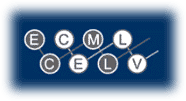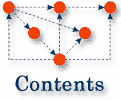
Quality Assurance in The State Sector
Round Table Presentation at the ECML Workshop 3/2002
Recorded by Mary Rose
![]()
Many countries in Europe are experiencing a period of educational reform; within these wide ranging reforms school improvement programmes are promoting strategies for quality assurance. Increasingly, individual countries are moving from a system of external inspection to one which builds collaboration with schools and teachers. This is enabling institutions to develop systems and processes for internal self-assessment and self evaluation. For example, in Slovenia this process of self-assessment is extended to include pupils and parents. In Malta, training in self-evaluation has been provided by the Ministry of Education for all schools and the Slovak Republic provides an example of the changing role of State Inspectors. The issues of quality and standards lie at the heart of these developments.
The following examples, initially given during a State Sector Round Table presentation in Graz, from the Czech Republic, Iceland, Norway, The Slovak Republic, Malta and Slovenia indicate the diversity of practice between countries in both the systems being introduced and the stages of development reached. Whole country and individual school practice is illustrated through the examples.
This is a sample from those presentations.
SLOVAK REPUBLIC
Ms Viera Eliasová
Viera is a teacher trainer in the Faculty of Arts at Comenius University in Bratislava.
As a result of discussions with the Inspectorate Viera described current school practice in the Slovak Republic.
Increasingly the main evaluative responsibility is being handed over to schools. The system has two strong strands;
- it is teacher oriented
- it is consumer oriented, in that it questions how parents and students needs may be ascertained
Currently members of the Inspectorate are coaching teachers to carry out internal assessment. Many teachers still find it difficult to describe their practice.
Quality
This is considered under the following main headings:
Quality of Teaching
- effectiveness of the teaching
- organisation and management of the classrooms
- teaching approaches and techniques
- effectiveness in relation to the individual needs of learners
Quality of Learning
- efficiency of the learning activity
- skills, knowledge, abilities, attitudes and the learning to learn ability of the learner
Questionnaires for teachers have been developed which examine aims, curriculum, syllabus etc, these help assess what needs to be changed.
Lesson observations
After every observation an auto/diagnostic sheet is completed by the teacher,
this includes recording their feelings about the observation. The outcome
of the observation, which is more relevant, is negotiated.
Methodology Centre
This provides an opportunity for teachers to examine practice and influence
developments. The Methodology Centre has a strong influence on shaping
the quality of teaching.
There is continued debate about creative approaches to teaching and how this may be assessed. This is part of Viera's continuing work
ICELAND
Quality Assurance in the Icelandic School System
contributed by Ms Adda Maria Johannsdottir
No official authority monitoring takes place eg no inspectors.
Individual schools may be working on their own quality control systems.
Individual School Example
Flensborgarskolinn.
First steps in quality assurance were piloted in Spring 2002. Staff meetings
were held and staff and students completed self-assessment questionnaires.
Student assessment took the following forms:
A. classes
B. school facilities and services
A. Teachers
Majority of teachers volunteered for the assessment
There was a standard questionnaire
The overall outcome was represented in graphical form
Individual teachers got their own outcome
As a result we discussed
- where do we need to improve?
- any flaws in the questionnaire
B. Students
Student discussions - without teacher interference
A group of 5-6 students discussed a given set of topics, but were free
to add topics or comment on other topics than those given to them.
This is being analysed and will be presented at a staff meeting this autumn.
Ms Helena Ocenaskova
There are both private and state schools across the country. Helena teaches in a state language school for adults. Her institution offers 29 languages. In her presentation Helena raised important questions: What can influence public opinion with regard to language teaching? The better the publicity, the better the provision? Is this representative of quality?
- teaching in state schools is poorly paid
- secondary school students not satisfied with their results attend private language schools
- there is a high demand for certification, many students study abroad
- every civil servant must have a certificate of language competence
- there is co-operation between state and private schools over examinations
SLOVENIA
Ms Zdenka Marinic
Zdenka is an early foreign language teacher. She provided an example of quality development from her own school, where there has been an increase in the focus on quality in language teaching.
Formerly quality assurance for schools was external. However, following reforms quality assurance processes are being used internally and build on self assessment.
Towards the end of the primary school pupils choose a second foreign language. The pupils are divided into 3 teaching groups according to their ability; teaching methods are adjusted to match.
Teachers work together in teams. Zdenka works in a team of 3.
Self assessment is supported by a strong system of feedback;
i. feedback from colleague teachers
ii. feedback from students
iii. feedback from students' parents
This quality circle enables teachers to meet consumers' needs.
More extended case studies are provided from Malta,
Slovenia and Norway.
